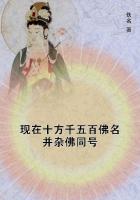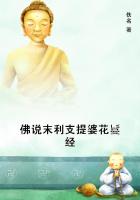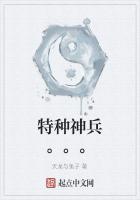He shows that we cannot distinguish between good and evil by reason alone, defining reason as the discovery of truth or false hood, and truth and falsehood as consisting in the agreement or disagreement, either to the real relation of ideas, or to real existence and matter of fact.
Taking reason in this sense, it certainly cannot be said to discern the morally good.But then it may be maintained that the mind has a power of discerning moral good and evil analogous to the reason which distinguishes truth and falsehood, and all that he could urge in opposition would be, that such a view is inconsistent with his theory of impressions and ideas.It is by no means clear what is the faculty or feeling to which he allots the function of perceiving and approving the morally good.Sometimes he seems to make man a selfish being, swayed only by motives of pleasure or pain; and in this view virtue is to be regarded as good, because associated directly or indirectly with the pleasure it would bring to ourselves.But in other places he calls in a " benevolent sentiment, leading us to approve what is useful." Hume's general theory might certainly seem op posed to every thing <innate>, and yet, in criticising Locke, he is obliged to say: " I should desire to know what can be meant by asserting that self-love or resentment of injuries, or passion between the ***es, is not innate." We have already quoted passages in which he appeals to instincts.He says elsewhere, "The mind, by an <original>
instinct, tends to unite itself with the good, and avoid the evil." At times he seems to adhere to the theory of Shaftesbury and Hutcheson, as to the existence of a moral sense."The mind of man is so formed by nature, that upon the appearance of certain characters, dispositions, and actions, it immediately feels the sentiment of approbation or blame." He tells us expressly that he is inclined to think it probable that the final sentence in regard to moral excellence "depends on some internal sense or feeling which nature has made universal in the whole species." I believe that we cannot account for the ideas in the mind except by calling in {151} such a faculty or feeling; and it was his business, as an experimental inquirer, to ascertain all that is in this power, and to determine its mode of operation and its laws.But such an investigation would have overthrown his whole theory, metaphysical as well as ethical.
According to Hume, virtue consists in the agreeable and useful."Vice and virtue may be compared to sounds, colors, heat and cold, which, according to modern philosophy, are not qualities in objects, but perceptions in the mind." "Virtue is distinguished by the pleasure, and vice by the pain, that any action, sentiment, or character gives us by the mere view and contemplation." This theory goes a step farther than that of Hutcheson in the same direction.
Hutcheson placed virtue in benevolence, thereby ****** the intention of the agent necessary to virtue; whereas Hume does not regard it as necessary that it should be voluntary, and requires us to look merely to the act and its tendency.
His definition might lead one to think that an easy road or a pleasant carriage should be regarded as virtuous.But he will not admit that because an inanimate object may be useful as well as a man, that therefore it ought also to merit the appellation of virtuous; for he says: ,The sentiments excited by utility are in the two cases very different, and the one is mixed with affection, esteem, approbation, and not the other." This language, more particularly the phrases "esteem" and "approbation," might leave led him to discover that there is a peculiar judgment or sentiment attached to virtuous action not produced by mere utility.
He easily satisfies himself that he can show that benevolence is a virtue because it is so agreeable and useful; but he never faces the real difficulty, which is to account for the sense of obligation which we feel, and the obligation actually lying upon us, to do good to others.
He strives to show that justice is commended by us because of its beneficial tendency.justice can have a meaning, he maintains, only in regard to society and arrangements made with others.True, the giving to every one his due, implies beings to whom the due is to be {152} given; but the due arises from the relation in which we stand to these beings.
Thus the first man and woman having children, had duties to discharge towards them as soon as they were born, and independent of any promise.He labors to prove that our obligation to keep a promise arises from utility." Fidelity is no natural virtue, and promises have no force antecedent to human conventions." True, a promise implies a person to whom it is made, but, once made, the obligation is complete.
This leads us at once to the fundamental objections which may be taken to the utilitarian theory.Whence the obligation lying on us to promote the happiness of others?
to give others their due? to keep our promises? From their utility, it is answered.But why are we bound to attend to what is useful? is the question that immediately occurs; why the reproach that follows, and which justifies itself when we have failed to keep our word? These questionings bring us to a justice which guards conventions, to a law which enjoins love.












